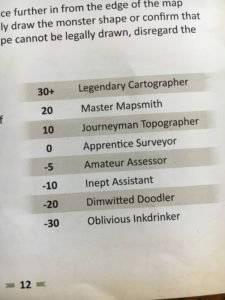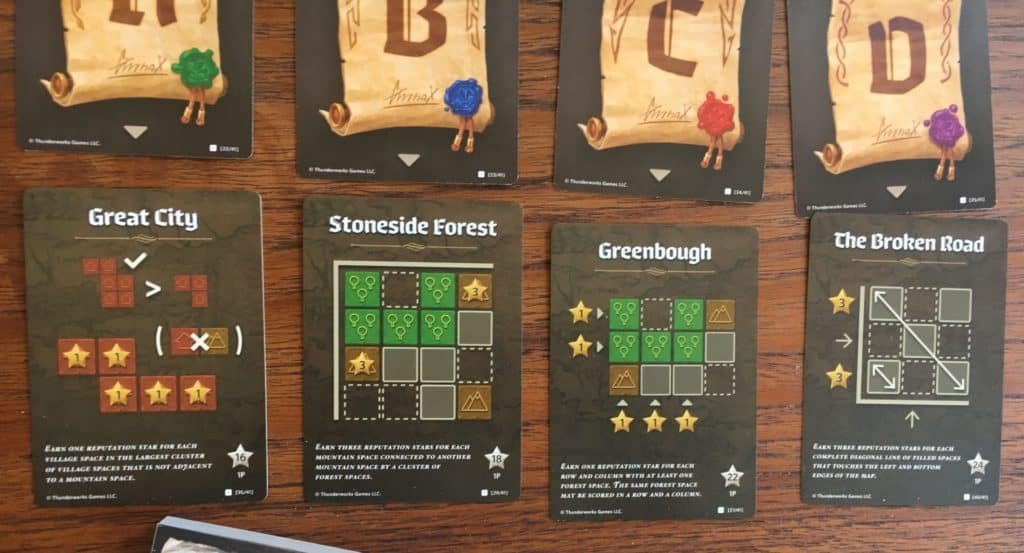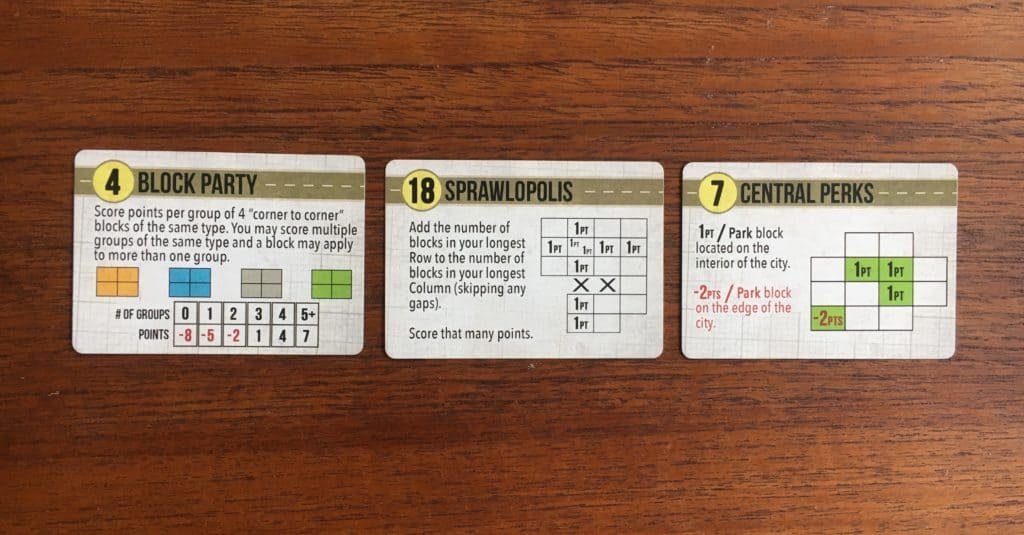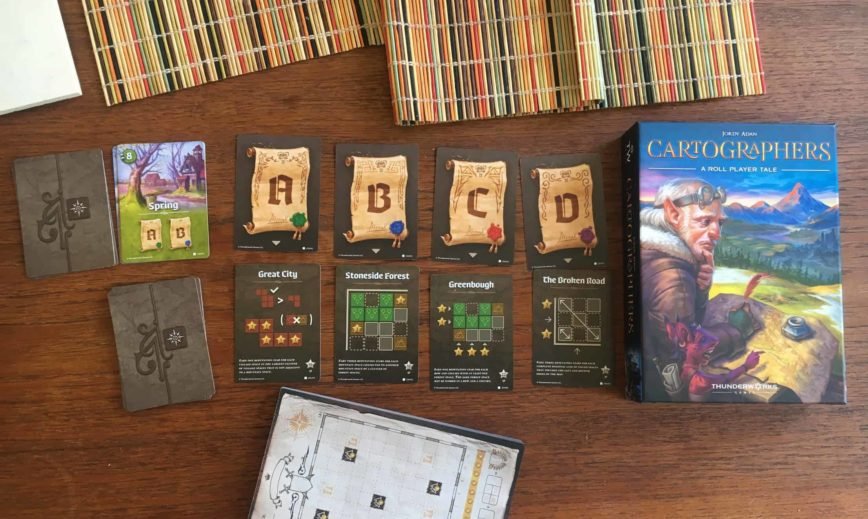The other day, I saw a facebook post about playing the game Cartographers: a Roll Player Tale with the solo rules. The poster hated it. People were agreeing with her. People who otherwise loved this game felt so bad about the solo rules, they vowed never to play it again.

See, there is a rules in the solo variant that isn’t in the base game, where you need to subtract a value from your score for each of the goal cards. Easier goals get bigger numbers, and harder goals get smaller numbers. The rulebook has a table showing you how well you’ve done, with a range of insults for negative numbers, and 30+ being “legendary cartographer”.

Now, this conversation was happening in a solo gaming group on facebook. These people are used to loosing: solo games are hard. Difficulty was not the problem. I think there were 3 problems here:
- When you subtract those values, you score will often disappear. Loosing is one thing. Not scoring a single point is another thing entirely.
- The game will call you “dimwitted” after. It’s one thing to lose. If you scored -20, you know you’ve lost, there is no need for the game to rub it in.
- In the base game, you often score 100+. In the solo variant, it could not be more different. You might be proud of a score of 10. It makes the game seem “mean” by comparison.
The Solution
In another popular solo game, Sprawlopolis, they have the same scoring system with one minor change. After you add up your score, it never asks you to subtract the goal cards values from your score. It’s worded slightly differently than Cartographers: “If your final score equals or exceeds the combined value of your 3 scoring condition cards, you win!” It could have asked you to subtract the goal card’s values for a final score, but it didn’t. It just asked you to compare them.

If Cartographers had simply said the final score worked the same as the base game, then said to subtract the goal card values to see how you did, nothing would change, but everything would feel different. Simply by changing the word “subtract” to “compare the difference.”
This is a good example of how a mechanically irrelevant change can drastically alter the perception of it.
Takeaway for Game Designers
Not all changes for the better are mechanical. Sometimes, they are psychological. There is no fundamental difference between how Sprawlopolis scores, and how Cartographer’s solo variant scores, yet the perception of the two are night and day. Even if most players wouldn’t vocalize how bad they felt about their negative scores in Cartographers, its still creating bad blood.
Games are all about psychology, and how players feel about something. Not how it works, but how it makes you feel.
How players feel about your game is, at the end of the day, all that matters. If a game has perfect mathmatical balance, but one card feels way too strong, then that card is too strong. If a mechanic feels bad, even though there’s nothing to feel bad about when looking at it from a technical side, there might be an easy change to make it feel better.



Ah. So it’s not just me. I have come to hate this game and can’t figure out why people rave about it. I’ve only played it solo and have not understood the scoring mechanic or the reasoning behind it. It’s arbitrary and needlessly mean. What’s the point?